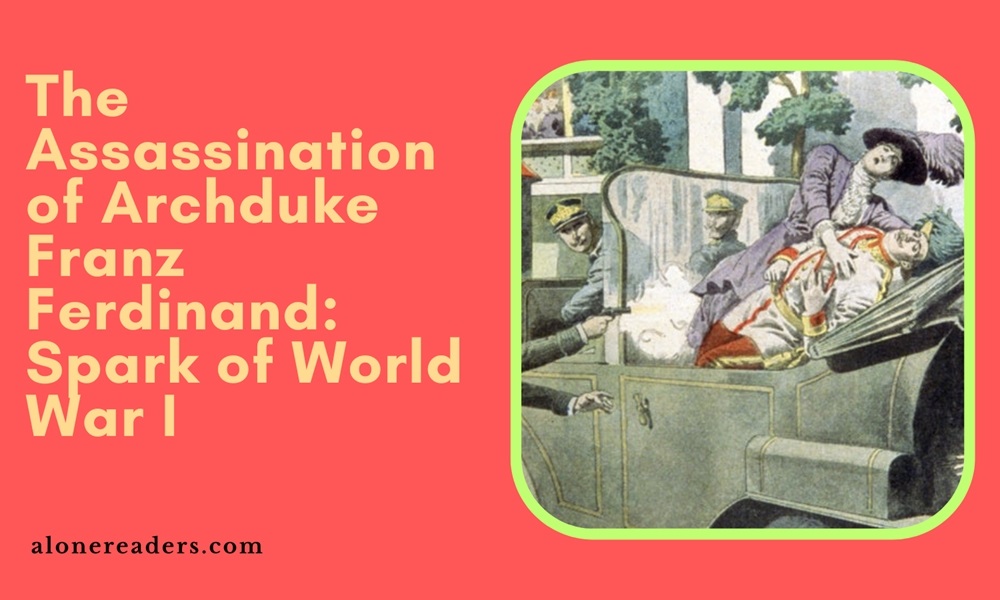
The assassination of Archduke Franz Ferdinand of Austria-Hungary on June 28, 1914, is widely recognized as the spark that ignited the first World War, a conflict that would reshape the world's political landscape and claim millions of lives. This article delves into the intricate details of the assassination, the political and social climate of the time, and the cascading events that led to one of the deadliest wars in human history.
In the early 20th century, Europe was a continent of simmering tensions, with nations entangled in a web of alliances and rivalries. The Balkans, in particular, were a hotspot of nationalist sentiment and imperial interests. Austria-Hungary, a vast and diverse empire, faced rising nationalist movements within its borders, especially from the Slavic populations in its southern regions.
Archduke Franz Ferdinand, heir to the Austro-Hungarian throne, was a figure of significant importance and controversy. His proposed reforms, which aimed at reconfiguring the empire into a triple monarchy to better accommodate the Slavic population, were seen by some as a threat to the existing order.
On that fateful day, Franz Ferdinand and his wife, Sophie, Duchess of Hohenberg, visited Sarajevo, the capital of Bosnia and Herzegovina, a territory annexed by Austria-Hungary in 1908. This annexation had angered Serbian nationalists, who viewed it as an illegitimate seizure of Serbian lands. Among these nationalists was Gavrilo Princip, a member of the Black Hand, a secret society committed to the creation of a Greater Serbia.
As the royal couple traveled in their open car through the streets of Sarajevo, they were unknowingly heading towards a deadly encounter. Earlier in the day, a failed assassination attempt had already occurred when another conspirator had thrown a grenade at their vehicle. Unharmed but shaken, the Archduke insisted on continuing with the day's program.
The crucial moment came as their driver took a wrong turn. Realizing the error, he stopped the car to turn around, inadvertently positioning the vehicle just a few feet away from Gavrilo Princip. Seizing the opportunity, Princip fired two shots: one hitting Franz Ferdinand in the neck and the other striking Sophie. Within an hour, both were dead.
The assassination set off a rapid chain reaction among the great powers of Europe. Austria-Hungary, with the backing of Germany, issued an ultimatum to Serbia, laden with demands so severe that they were almost certainly going to be rejected. Serbia's partial compliance was not enough to prevent war. Austria-Hungary declared war on Serbia on July 28, 1914.
This declaration triggered a domino effect due to the complex alliance systems in place. Russia, bound by treaty to Serbia, began mobilization against Austria-Hungary. Germany, allied with Austria-Hungary, declared war on Russia. France, allied with Russia, found itself at war with Germany and, by extension, Austria-Hungary. Germany's invasion of Belgium brought Britain into the war against Germany and Austria-Hungary.
What started as a regional conflict quickly escalated into a global war. Nations from around the world were drawn into the conflict, either due to colonial ties or alliances. The war saw unprecedented levels of military mobilization and devastation. It introduced new and deadly technologies like tanks, airplanes, and chemical weapons, marking a new era in warfare.
The assassination of Archduke Franz Ferdinand was more than just the murder of a royal figure; it was a catalyst that unleashed deep-rooted tensions and rivalries, leading to a catastrophic war. The Treaty of Versailles, which officially ended the war, imposed harsh penalties on Germany and redrew the map of Europe, setting the stage for further conflicts, including World War II.
The events of 1914 remind us of the fragility of peace and the complex interplay of political, social, and individual actions that can lead to large-scale conflict. The assassination of Franz Ferdinand stands as a stark example of how a single event can alter the course of history.
The assassination of Archduke Franz Ferdinand is a pivotal moment in history that highlights the complexities of international relations and the unforeseen consequences of political actions. It serves as a cautionary tale about the dangers of nationalism, imperialism, and the intricate web of alliances. As we reflect on this event, it is crucial to understand its role in shaping the modern world and the importance of striving for peace and diplomacy in international affairs.